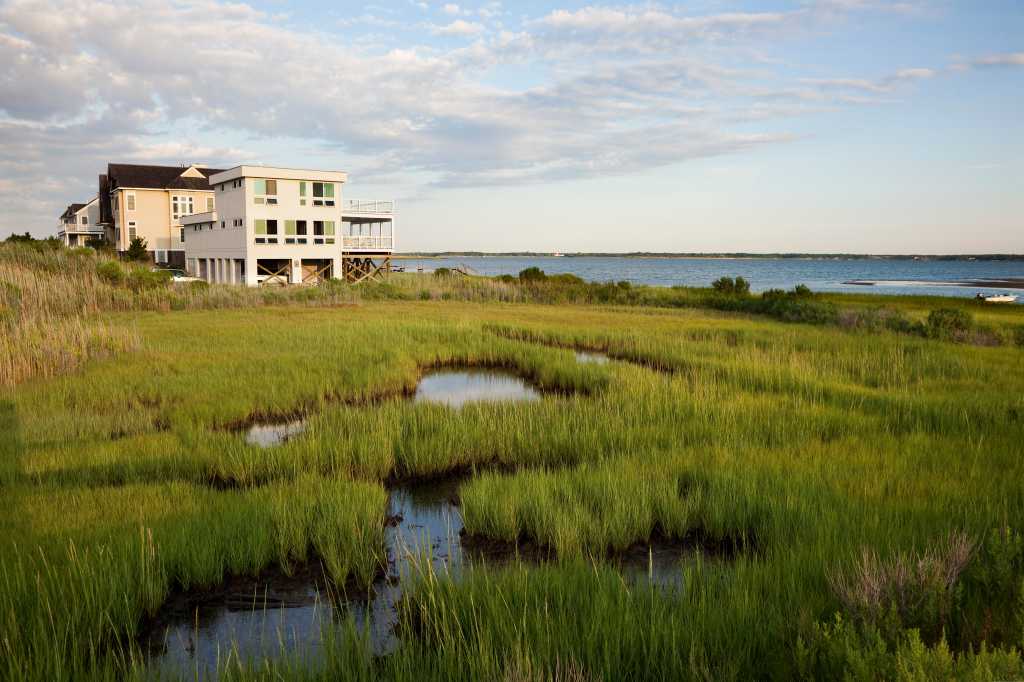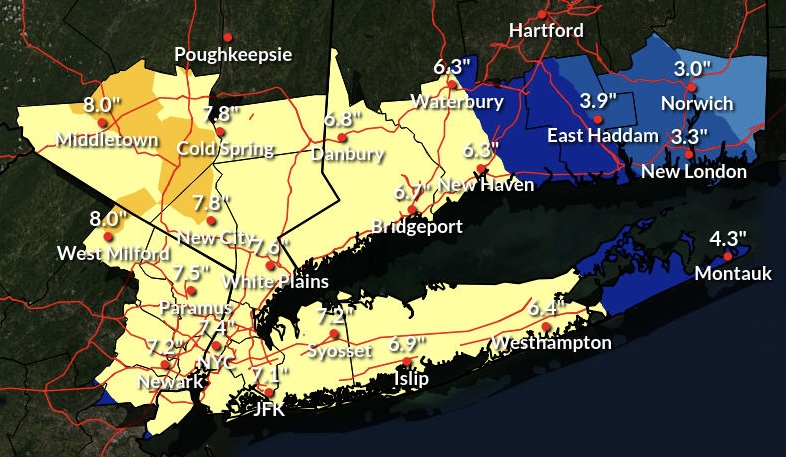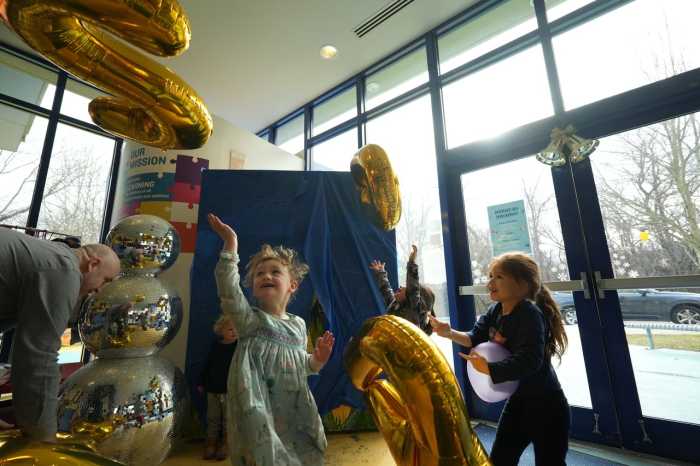Funding Flows: NY State Budget Brings Grants, Policy Changes to East End
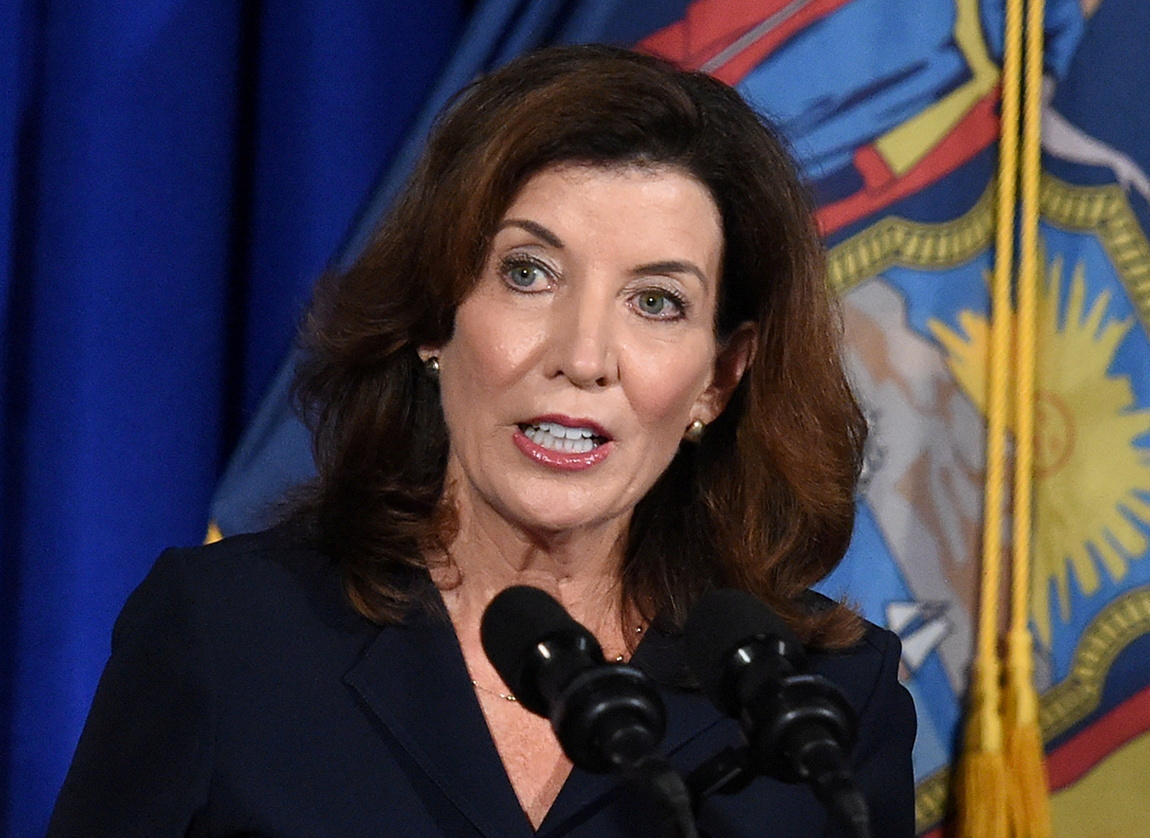
New York State lawmakers’ passage of a $220 billion budget April 9 will infuse the East End with increased funding for education, the environment and myriad other initiatives while also ushering in many non-budgetary reforms.
Democrats who hold the majority of the state Legislature cheered Gov. Kathy Hochul’s first budget package, which was belatedly approved a week after the April 1 deadline amid protracted negotiations. Republicans decried the partial rollback of the hotly debated bail reforms, which was chief among the major non-budgetary policies included in the measure. Officials from the Twin Forks region argued for and against the budget from both sides of the aisle — with details to be parsed out for weeks to come.
“This budget provides much-needed tax relief for thousands of small businesses and millions of New Yorkers, and reduces the tax burden for those who need it most,” the governor said. “In a post-COVID-19 era, New Yorkers will recover from the pandemic and lead the nation in an economic resurgence, and I applaud the legislative leaders for their collaboration to help ensure this historic budget leaves no one behind.”
The state is set to rely on an influx of federal funds and higher-than-expected tax revenues to balance its one-year state budget.
Here’s a look at what’s in the budget.
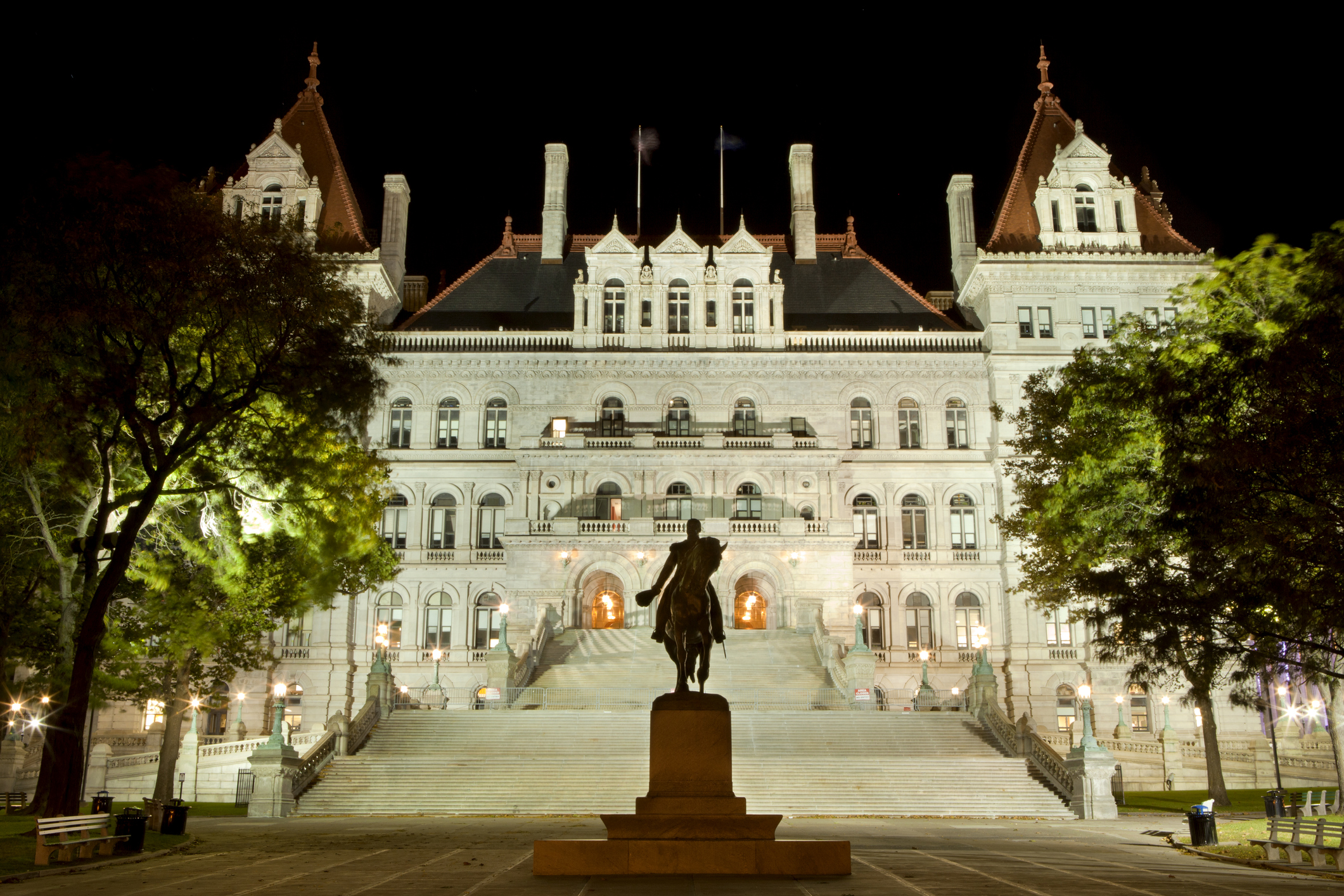
SCHOOL FUNDING HIKE
The budget includes an unprecedented level of funding and support for education, including historic aid funding for East End schools: $31.2 billion in general support for public schools, up $2.1 billion from last year.
The budget also includes $21.3 billion in Foundation Aid, up $1.5 billion from last year and a guaranteed 3% minimum increase for all school districts. “By fully investing in our schools and our teachers, we can ensure that every child has access to a quality education,” State Assemblyman Fred Thiele (I-Sag Harbor) says. “I am immensely proud that this budget passed by the Assembly upholds the promise of fully funding Foundation Aid for the second year, delivers exceptional academic supports for recovering districts and enhances early childhood education.”
Thiele notes that the budget includes $100 million in matching funds over two years for districts to address student wellbeing and learning loss in the wake of the COVID-19 pandemic. Districts will be able to utilize this funding for mental health professionals, after-school programs and extended school programs.
Find out how much more state aid East End school districts received in this year’s budget.
TAX RELIEF
Homeowners can expect tax relief: New York will spend $2.2 billion in one-time property tax rebates for low- and middle-income homeowners. That rebate would arrive this fall, when the Democratic governor is set to appear on the ballot. The state will also decrease tax rates for the middle class by $162 million by April 2023, instead of waiting until 2025 to fully phase in those long-planned tax cuts.
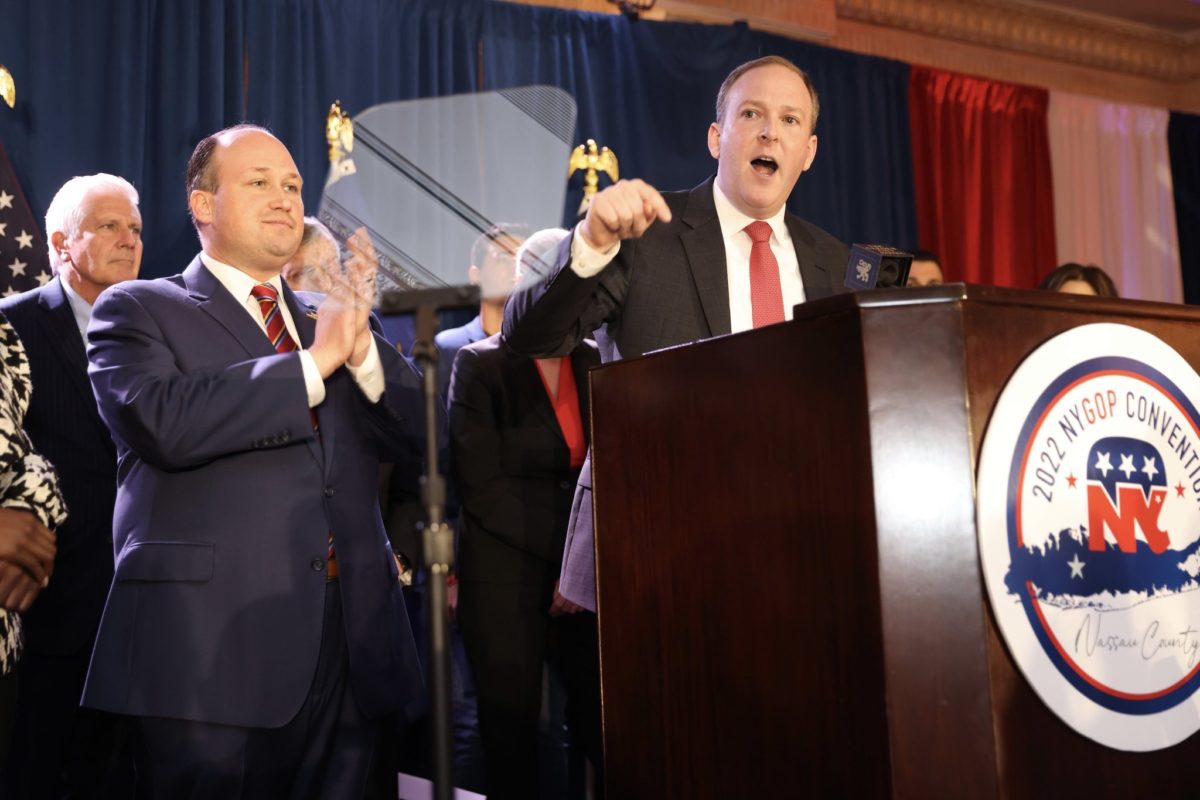
REFORMING BAIL REFORM
The tug of war over bail reform gave Hochul a win in giving judges more power to jail people who were repeatedly ticketed for minor theft or property damage offenses, although progressives decried any change to the earlier reforms and conservatives argued it didn’t go far enough.
Judges have to release people if the court determines the alleged theft is “negligible” and not “in furtherance of other criminal activity.” Criminal justice advocates say the new law will lead to more poor and minority New Yorkers being held behind bars while awaiting trial. GOP leaders maintained that the reforms put the public at risk.
“These changes will do very little to protect New Yorkers from crime, fail to give judges discretion and are seemingly designed more for political cover, than improving public safety,” said Sen. Anthony Palumbo (R-New Suffolk), whose district covers the Hamptons and the North Fork. “(The) budget vote … was a missed opportunity to improve public safety in New York and enact common sense reforms with the input of law enforcement, judges, district attorneys and other stakeholders.”
U.S. Rep. Lee Zeldin (R-Shirley), the congressman for the East End who is the Republican gubernatorial nominee, said the changes amounted to Hochul capitulating to the progressive wing of her party.
“Hochul initially left changes to cashless bail out of her original budget proposal, waited until she got bad polling and (was) booed and roasted in Madison Square Garden during her infamous puck drop, made a weak initial ask, and then got rolled by the far-left to settle for almost nothing,” Zeldin said.
Some Democrats voted against parts of the spending plan, in part for cracking down on people with repeated low-level offenses. Proponents of bail reform argue that a spike in crime nationwide shows that it wasn’t the criminal justice policy changes, but the pandemic-induced economic downturn that is to blame for the uptick. To help address the issue, New York has also added more firearm possession crimes to the list of offenses that could land people who can’t afford bail behind bars.
ENVIRONMENTAL INITIATIVES
Voters in November will decide whether to approve $4.2 billion in bonds to fund environmental and energy projects such as conservation, climate-change mitigation, zero-emission school busses and green buildings. It’s known as the Clean Water, Clean Air and Green Jobs Environmental Bond Act.
The budget also increases the Environmental Protection Fund to $400 million, provides $450,000 to the Peconic Estuary Partnership to support monitoring efforts, adds 1 million acres of freshwater wetlands protection under the protection of the Department of Environmental Conservation, and provides a tax credit for the installation of geothermal energy systems that reduce the use of fossil fuels.
The budget doesn’t include Hochul’s proposal to ban natural gas in new buildings, to the disappointment of climate activists, but she is still pushing for the change before the legislative session adjourns at the end of June.
COCKTAILS TO-GO
One of the few popular state initiatives to come out of the pandemic — allowing bars and restaurants to sell alcoholic beverages to-go — made a comeback in the budget. Liquor and wine are now available for takeout and delivery for three years, as long as the purchase includes a “substantial food item.” That practice instituted during the pandemic was intended to help struggling restaurants. State regulators will decide whether French fries or other snacks will count as “substantial” items. Some joked that the measure meant the return of “Cuomo chips” — restaurants passing off snack foods as meals to avoid State Liquor Authority fines under former Gov. Andrew Cuomo. The SLA is still hashing out the details, but has so far clarified that chips are not substantial, but nachos are.
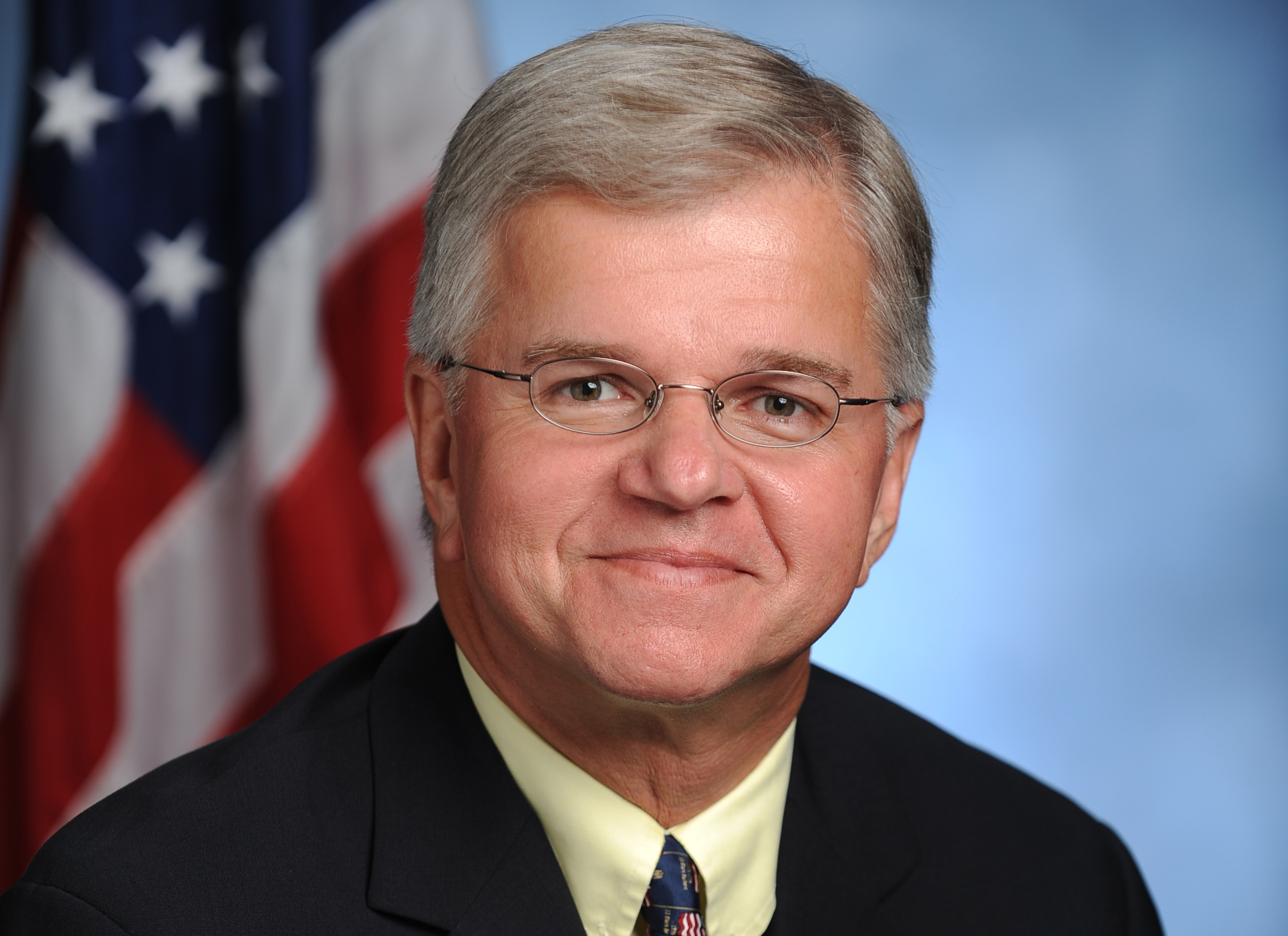
EMS COST RECOVERY FOR VOLUNTEER FDS
The budget package also included measures to allow volunteer fire departments to bill insurers for emergency medical services. Before Thursday, New York State was the only state in the nation that forbade this billing practice, which has cost volunteer companies millions of dollars annually.
“Cost recovery for volunteer fire departments is a long-overdue relief for our first responders on the front lines daily for our communities,” said Thiele. “Prior to these reforms, fire departments struggled to afford the staggering costs of emergency medical services, with only fire tax revenue to sustain the vital services they provide.”
GAS TAX CUT
The budget shaves 16 cents off the cost of a gallon of gas from June 1 until the end of the year in response to soaring gasoline prices, with the state asking counties to consider doing the same.
Lawmakers in Nassau and Suffolk also temporarily capped local gas taxes for a similar duration.
CASINOS, BUFFALO BILLS
The state will start accepting bids for three new casinos this year, one year earlier than planned. A new casino will need two-thirds approval from a community board consisting of political appointees selected by the governor, mayor and state and local representatives.
Among the applicants for a license are the Shinnecok Indian Nation, who hope to open a full Las Vegas-style casino somewhere on Long Island beside the electronic casino the tribe is currently building on its territory.
~ With Oliver Peterson and Associated Press
